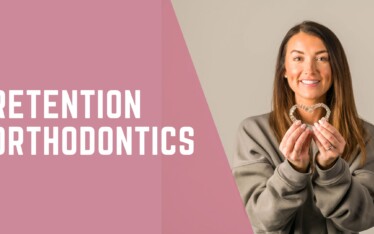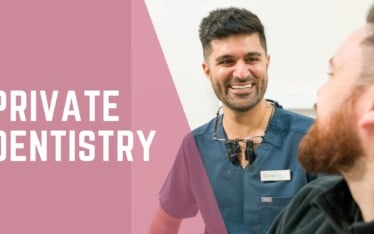The importance of enhanced oral health during pregnancy
Pregnancy is a journey filled with anticipation and excitement, but it also comes with a heightened need for self-care. Many expecting mothers are unaware of the significant impact that oral health can have on both their own wellbeing and the health of their developing baby.
Research has shown a clear connection between a mother’s oral health and the wellbeing of the unborn child. Poor oral health during pregnancy has been linked to complications such as preterm birth, low birth weight and gestational diabetes. The hormonal changes that occur during pregnancy can increase the risk of gum disease, which if left untreated can lead to more serious health issues for both mother and baby.
One common oral health concern during pregnancy is gingivitis (gum inflammation). This condition is characterised by swollen, tender gums that may bleed during brushing or flossing. The hormonal changes of pregnancy can make the gums more sensitive to plaque, increasing the risk of inflammation and infection. Pregnancy gingivitis typically occurs in the second trimester and if not addressed, can progress to more severe forms of gum disease. Despite the very common myth, it is not your baby giving you gum disease, but in fact is your body’s heightened response to the plaque that is present. It is vital to maintain excellent tooth brushing habits, minimise the amount of plaque in the mouth and consequently the gums will then have nothing to react with! Keeping you and your baby healthy.
Regular dental examinations are essential for maintaining oral health during pregnancy. Dental hygienists can provide professional cleanings to remove plaque and tartare build-up, you’re your dentist can detect and treat any oral health issues early on. It is important to inform your dentist if you are pregnant or planning to become pregnant so that they can tailor their care to meet your specific needs. Most dental treatments, including hygiene are safe during pregnancy.
Top tips:
- Brush and floss regularly – Brush your teeth at least twice a day and floss daily to remove plaque and food particles that can contribute to gum disease;
- Use a fluoridated toothpaste – Fluoride helps to strengthen tooth enamel and prevent cavities. Choose a fluoride toothpaste that is approved by your dentist;
- Eat a balanced diet – A nutritious diet rich in vitamins and minerals, especially calcium and vitamin C, is essential for maintain strong teeth and gums;
- Stay hydrated – Drink plenty of water throughout the day to help rinse away bacteria and prevent dry mouth, which can increase the risk of cavities;
- Manage morning sickness – If you experience morning sickness, rinse your mouth with water or a fluoridated mouthwash- do not brush immediately. Tis is to neutralise stomach acids ad protect your tooth enamel;
- Practice stress management – Stress can exacerbate oral health issues, so finding healthy ways to manage stress, such as exercise or meditation, can benefit both you and your baby;
The effects of recurrent sickness, or morning sickness, on dental health can vary depending on the severity and frequency. Vomit contains stomach acid, which is highly acidic and can erode tooth enamel. Enamel erosion weakens the outer layer of the teeth, making them more susceptible to cavities, sensitivities and other dental problems. As enamel erodes, the underlying dentine becomes exposed, increasing the risk of cavities. Bacteria can easily penetrate the weakened enamel and cause decay, leading to cavities – particularly in areas where enamel erosion is most severe. Enamel erosion can also lead to tooth sensitivity, causing discomfort or pain when consuming hot, cold or sweet foods and beverages. This sensitivity occurs because the protective enamel layer that protects the nerves within the teeth becomes thinner as a result of erosion. Severe enamel erosion can alter the appearance of teeth, making them appear more yellow. These changes can affect the aesthetics of the smile and may require cosmetic dental procedures once the sickness has subsided to address the appearance changes. The acidic nature of vomit can irritate the gums, causing inflammation, redness and tenderness. Prolonged exposure to stomach acid can lead to gum disease, characterised by gum recession, bleeding and gum tissue damage. The pattern of enamel erosion caused by vomiting often follows specific patterns, such as affecting the back teeth or the inner surfaces of the front teeth due to the force and direction of the sickness. Pregnant individuals experiencing morning sickness are at a higher risk of dental erosion due to frequent vomiting episodes. It is essential for pregnant women to take extra precautions to minimise the impact of stomach acid on their teeth. You should avoid brushing immediately after vomiting, as the abrasive action of the brush can further damage the softened enamel. Instead, rinsing can help to neutralise the acid. Waiting about 30 minutes before brushing allows saliva to naturally remineralise the enamel. Maintaining good oral hygiene practices, including regular brushing, flossing and dental examinations can help prevent further damage and maintain dental health despite the challenges of morning sickness.
Enhanced oral health during pregnancy is vital for ensuring the health and wellbeing of both mother and baby. By prioritising regular dental examinations, maintaining good oral hygiene habits, and following the tips outlined in this blog, expecting mothers can protect their smiles and set the foundation for a lifetimes of oral health for their children. Remember, a healthy mouth is a happy mouth and that is something to smile about-especially during such a joyous time in your life.



